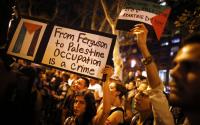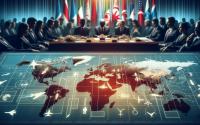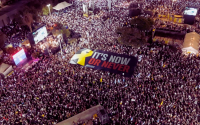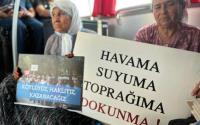Common Dreams / Published on Thursday, February 24, 2005 by the Los Angeles Times
With the emergence of Shiite physician Ibrahim Jafari as the leading candidate for Iraqi prime minister earlier this week, the contradictions of Bush administration policy in the Middle East have become even clearer than they were before.
President Bush says he is committed to democratizing the region, yet he also wants governments to emerge that are friendly to the U.S., benevolent to their own people, secular, capitalist and willing to stand up and fight against anti-American radicals.
But what if democratic elections do not produce such governments? What if the newly elected regimes are friendly to states and groups that Washington considers enemies? What if the spread of democracy through the region empowers elements that don't share American values and goals?
The recent election in Iraq is a case in point. The two major parties in the victorious Shiite alliance are Jafari's party, the Dawa, founded in the late 1950s to work for an Islamic republic, and the Supreme Council for Islamic Revolution in Iraq, or SCIRI, the goal of which can be guessed from its name. To be fair, both have backed away from their more radical stances of earlier decades. But both parties -- and Jafari himself -- were sheltered in Tehran in the 1980s by Washington's archenemy, Ayatollah Ruhollah Khomeini, and both acknowledge that they want to move Iraq toward Islamic law and values.
The victorious Shiite fundamentalists have already taken steps that may be making the Bush administration nervous. They made it clear that they would attempt to incorporate their paramilitaries into the new Iraqi army. SCIRI has the Badr Corps, made up of about 15,000 men under arms trained originally by the Iranian Revolutionary Guards, and Dawa has its own paramilitary.
The two parties also announced that they would try to bring into the government's armed forces members of the Al Mahdi militia of Shiite nationalist Muqtada Sadr, which have fought hard battles against the U.S. military in Najaf and elsewhere. Jafari has previously said that he hoped to bring Sadr into the Iraqi government. Jafari likewise has protested U.S. military action in Fallouja.
In interviews, Jafari has warned against deliberate attempts to undermine Iraq's relations with neighboring Iran, which he has visited on several occasions for consultations since the fall of Saddam Hussein.
To be fair, Jafari has emerged as a moderate and skillful politician, and his devotion to his faith should in principle be no more objectionable than Bush's own devotion to Christianity. Yet it certainly seems that his new government will adopt policies far less welcome in Washington than those of interim Prime Minister Iyad Allawi.
In the current struggle over whether the fundamentalist Lebanese Shiite party, Hezbollah, should be designated a terrorist organization, it seems clear that both the Dawa and the Supreme Council for Islamic Revolution in Iraq will side with Hezbollah.
The fact is, democracy is an unruly process; it doesn't always yield the results we want or expect. Bush likes to talk in terms of good versus evil, to suggest that the forces of freedom and democracy are doing battle with the defenders of tyranny -- but he should be aware that the world isn't always that simple.
He should remember, for instance, the 2002 elections in Pakistan, pushed for by Washington, which produced an unexpectedly good showing for the United Action Council, a coalition of hard-line fundamentalist parties. Some of them had helped train the Taliban. They won 17% of the federal parliament seats, won outright in the Northwest Frontier Province and now govern Baluchistan in coalition. Their leaders argued that Al Qaeda was merely a figment of the U.S. imagination.
A full disaster was averted in Pakistan only because the federal government was still dominated by military dictator Gen. Pervez Musharraf. Nevertheless, the United Action Council has attempted to impose a draconian version of Islamic law in the provinces it controls and has not been helpful to the U.S. in tracking down Al Qaeda operatives.
Pakistan and Iraq are not the only countries where elections have had mixed results. Although the Palestinian elections in January were widely viewed as a success -- producing a pragmatic prime minister, Mahmoud Abbas -- remember that the radical fundamentalist party, Hamas, boycotted those elections. Then, less than three weeks later, local elections were held -- and Hamas won decisively in the Gaza Strip, leaving it more influential than before and poised for even bigger wins in next July's legislative elections.
And in recent years, democratization has also put Hezbollah in the Lebanese parliament. Serbian nationalists have won seats in Belgrade.
Are such outcomes acceptable to the Bush administration? If not, how will it respond? Given the war on terror, it is unlikely to simply take these electoral setbacks lying down.
But if Washington falls back on its traditional responses -- covert operations, attempts to interfere in parliamentary votes with threats or bribes, or dependence on strong men like Musharraf -- the people of the Middle East might well explode, because the only thing worse than living under a dictatorship is being promised a democracy and then not really getting it.
Juan Cole is professor of modern Middle Eastern and North African studies at the University of Michigan. He maintains a blog on Middle East affairs, Informed Comment.






